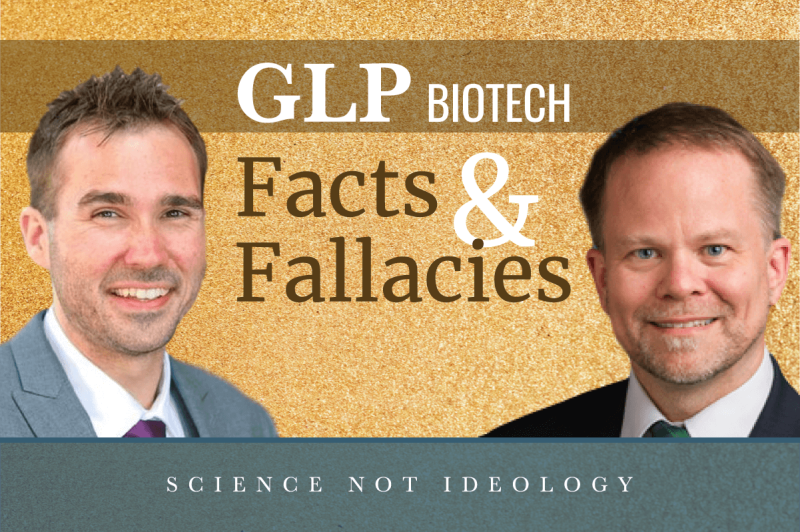Podcast: Play in new window | Download
Subscribe: RSS
Join geneticist Kevin Folta and GLP contributor Cameron English on this episode of Science Facts and Fallacies as they break down these latest news stories:
Scientists remain divided over the origins of SARS-COV-2, and several progressive anti-GMO groups have taken a side in the debate, asserting that the virus originated in a Chinese laboratory. There are open questions surrounding the pandemic’s beginnings, and many experts have called for a thorough investigation, but the activists see an opportunity to bolster their broader anti-biotechnology agenda in the controversy. What effect could this have on important, and potentially life-saving, virology research?
The media continues to assert that organic produce is more nutritious, earth-friendly and safer than conventionally produced fruits and vegetables. Every one of these claims has been debunked, so why do we continue to see headlines to the contrary?
By infusing the gene editor into patients (instead of removing the damaged cells and editing them) researchers can disable the defective gene, cutting off production of the harmful protein. The novel therapy could pave the way to new treatments for more common genetic disorders.
Kevin M. Folta is a professor in the Horticultural Sciences Department at the University of Florida. Follow Professor Folta on Twitter @kevinfolta
Cameron J. English is the director of bio-sciences at the American Council on Science and Health. Follow him on Twitter @camjenglish
































